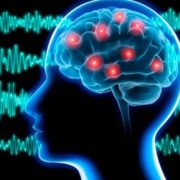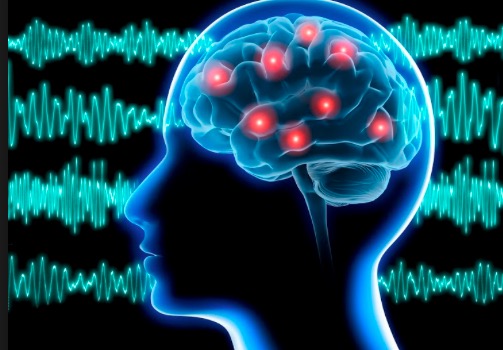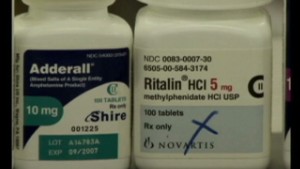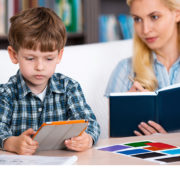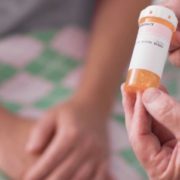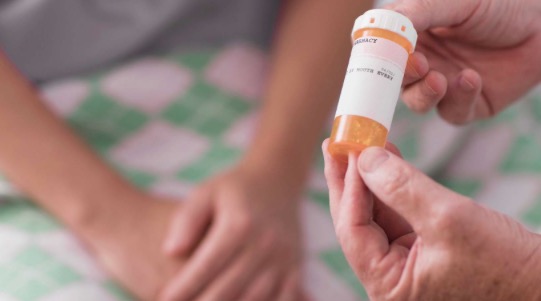A Relatively Quick Rundown of ADHD
A Relatively Quick Rundown of ADHD
A Relatively Quick Rundown of ADHD
Attention-Deficit Hyperactivity Disorder, or, ADHD, is a fairly common neurodevelopmental disorder, which is characterized primarily by abnormalities in areas such as attention, behavior, and academic performance. It normally develops in early childhood, usually by the age of 7. Estimates vary on the prevalence of ADHD, with the American Psychological Association (APA) reporting that roughly 5% of school aged children in the U.S. have ADHD; while the Center for Disease Control and Prevention (CDC) states that the amount is much higher, at 11%. Nevertheless, ADHD is among the fastest growing disorders in the country. In 2012, the CDC released a shocking nationwide study on the growth of ADHD between the years of 2003-2011, finding a whopping 42% increase of ADHD diagnosis within these eight years alone.
Which begs the question; what leads to somebody getting diagnosed with Attention-Deficit/Hyperactivity Disorder? There are three key factors which all ADHD diagnosis share to some degree; inattention, hyperactivity, and impulsivity. While these are all common traits among children, especially young children, those who have developed ADHD display much higher levels of these three traits to the point where they become detrimental to their development. Additionally, there are a host of risk factors which make the development of ADHD more likely.
Studies have shown that ADHD tends to run in families, meaning that if your Grandfather, Aunt, or even yourself have ADHD, then your child is more likely to develop it as well. Unfortunately, another strong risk factor is simply being born a boy. Boys are three times as likely to develop ADHD than their female counterparts, with the National Institute of Mental Health reporting that nearly 13% of men will be diagnosed with ADHD at some point in their lives. In addition to genetics and gender, prenatal situations during pregnancy, as well as nutrition, play pivotal roles in the development of ADHD. For example, the drug Acetaminophen, which has been used to treat fevers and morning sickness in pregnant women has been shown to have substantial effects on ADHD if taken long-term. Additionally, poor nutrition during pregnancy as well as during early childhood make the odds of developing ADHD much higher.
Yet, nutrition can also be very beneficial in aiding ADHD treatment. In a series of long-term studies conducted by a wide range of nutritionists, it was found that diets low in added sugars are able to curve the effects of ADHD, especially if there is also good protein intake. Aside from their general health benefits, some foods that are particularly well suited for helping with ADHD are meats such as lean beef, poultry, and fish; as well as other foods like eggs, beans, nuts, soy, and low-fat dairy products. Unfortunately, the best foods to avoid are the foods that kids tend to enjoy the most, such as candy.
While dietary adjustments are certainly helpful in correcting ADHD behaviors, medication is recommended for more severe cases. Normally, the first type of medications prescribed are stimulants. Though the naming of these medications may seem counterintuitive, stimulants have been proven to have strong results in those diagnosed with ADHD. You see, the brain is filled with a seemingly infinite amount chemicals called “neurotransmitters”, which in short are responsible for relaying signals between the nerve cells (neurons) of the brain. There are many different types of neurotransmitters, and stimulants focus on one of the most famous ones: dopamine.
Dopamine is a very special neurotransmitter in that it is largely responsible for signaling the “perceived motivational prominence” of an action. In this role, dopamine essentially tells a person whether or not the outcome of a particular action will have good or bad consequences. In people with ADHD, this function of dopamine is likely to be disrupted, resulting in the brain being less able to tell when an action will have positive or negative outcomes. Stimulants, such as Adderall, Ritalin, and Concerta, increase the amount of dopamine in the brain, therefore helping to correct this disruption in most cases (70-80%) of ADHD.
Furthermore, stimulants can be broken down into different sub-groups. Some are “shorter acting”, meaning that they kick in quickly but also do not last as long. Typically, people take these multiple times per day. Others are “longer acting”, which take longer to kick in but can last through most of the day and are usually only taken once or twice per day. Furthermore, there are also “Methylphenidate types”, and “Amphetamine types”, which are each broken down into the previously mentioned short and long acting.
As with any form of medication, there are side effects to be aware of. In stimulants prescribed for ADHD, these are generally rather mild, but can become quite the nuisance over time. These include but are not limited to; dizziness, lack of appetite, weight-loss, sleep issues, and rebound. The last of these side effects is perhaps the most frustrating, as, despite the stimulants working, the child becomes very irritable and upset when the medication wears off. Sometimes, boosters are used to mitigate the effects of rebound by inducing small amounts of the medication towards the end of when it is supposed to wear off in order to make it a bit easier on the child.
However, there are cases where stimulants are simply not the right course of action to take. There are a few reasons why this may be the case. Sometimes, patients simply do not respond to stimulants, while other times the side effects are too strong. In this case, non-stimulant medication is recommended. Similar to stimulants, non-stimulants also focus on neurotransmitters; specifically, increasing norepinephrine, which plays a large part in attention. Yet, they may take up to 6 weeks to see results, unlike stimulants which are much faster acting. Some examples of non-stimulants include Intuniv, Tenex, and Strattera. Additionally, Antihypertensive medications can be used to treat hyperactivity, but this is normally reserved for more severe cases of ADHD.
In many cases of ADHD, therapy of some form is recommended. ADHD usually has a large impact on family functioning. Perhaps unsurprisingly, for families struggling with the symptoms of ADHD, family counseling is rather common. As kids with ADHD get older and their symptoms more prominent, psychotherapy may be used to help them better manage their expressions. Additionally, children who grow up with the disorder are more likely to develop feelings of isolation and have a hard time making friends. As a result, they are at higher risk for things such as loneliness and depression. Therefore, group therapy is relatively common for those with ADHD, especially as the child grows up. No matter what form it is in, the most important aspect of therapy for ADHD is the learning of coping mechanisms, which help the patient and their family learn how to better manage their symptoms.
As a whole, Attention-Deficit Hyperactivity Disorder is a difficult thing for a person to grow up and live life with. People with ADHD are often ostracized by their peers, teachers, and families alike due to their behavior; which is largely out of their control. It is a disorder which many people are at risk of developing, and rates have only increased over time. There are many speculations as to why this is the case, but as of now there is no definitive consensus. Yet, steps can be taken by parents in order to reduce the risk of their child developing ADHD. These include strong nutrition during pregnancy and in early childhood, avoiding smoking or drinking alcohol during pregnancy, limiting added sugars in the child’s diet, and allowing for plenty of physical play. If ADHD does develop, it is not the end of the world! Luckily, there are plenty of treatment options for the disorder, including therapy, ADHD/Executive Functioning Coaching, and medication options.
If you or a loved one have questions or concerns about ADHD the staff at Pathways Neuropsychology Associates is here to help. We provide a comprehensive assessment to get the right diagnoses and to direct you to the right treatment. Our treatments include psychotherapy, Parent Management training, ADHD/Executive Functioning Coaching, and biofeedback. We can also make recommendations for school accommodations.
Puglisi-Allegra S, Ventura R (June 2012). “Prefrontal/accumbal catecholamine system processes high motivational salience”. Front. Behav. Neurosci. 6: 31. doi:10.3389/fnbeh.2012.00031. PMC 3384081. PMID 22754514.
Hodgkins, P, et al. “Amfetamine and methylphenidate medications for attention-deficit/hyperactivity disorder: complementary treatment options” Eur Child Adolesc Psychiatry, 2012, pp 69-72
Konofal, Eric, Michel Lecendreux, Isabelle Arnulf, and Marie-Christine Mouren. “Iron Deficiency in Children With Attention-Deficit/Hyperactivity Disorder.”
Jones, T W, et al. “Enhanced Adrenomedullary Response and Increased Susceptibility to Neuroglycopenia: Mechanisms Underlying the Adverse Effects of Sugar Ingestion in Healthy Children.” The Journal of Pediatrics, vol. 126, no. 2, 1995, pp. 171–177.
Glover V (April 2011). “Annual Research Review: Prenatal stress and the origins of psychopathology: an evolutionary perspective”. Journal of Child Psychology and Psychiatry, and Allied Disciplines. 52 (4): 356–67.
https://www.cdc.gov/ncbddd/adhd/data.html
https://www.apa.org/topics/adhd
https://www.verywellmind.com/counseling-and-add-20870
https://www.psychologytoday.com/us/blog/mouse-man/200904/what-is-dopamine
The post A Relatively Quick Rundown of ADHD appeared first on Pathways Neuropsychology Associates.
Source: Pathways Neuropsychology
A Relatively Quick Rundown of ADHD



